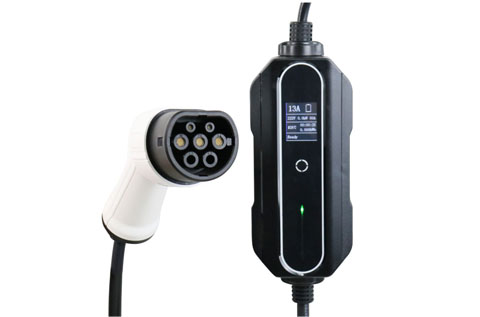
Products
Fast, Reliable, Everywhere

Solutions
Efficient, Innovative EV Charging Solutions.
News
We are committed to the innovation and application of EV charging.
Electric vehicle shoppers need to factor in the price of both the vehicle and the charging station. When driving an electric car, recharging is as easy as plugging it in, so you may come back to a full tank in the morning. Choosing the best Electric car charger for home, however, might be a lot trickier.
Whether you're purchasing an electric automobile for the first time or updating your existing station, here's the dirt on home chargers.

Differences between Level 1 and Level 2 charging
The Level 1 and Level 2 domestic electric vehicle charging stations are indeed the two most popular models available today. Level 1 charging is standard on most newer vehicles but lacks the power of a dedicated Level 2 charging station.
When it comes to regaining range, a charging station's output determines how quickly this may be accomplished. Within one hour, the Level 1 charger may restore 4–5 miles of range. A Level 1 charge may not be convenient for an all-electric car with a greater range. For example, a Nissan Leaf would need to be plugged in for 16 hours to be able to drive it as far as the charge would allow.
What Does the Average Price of an Electric Vehicle Charging Station and Setup?
Installing an electric car charger for home in your garage will set you back at around $2,200 on average. Installing new wiring will need the services of a professional electrician, the price of which is included in our estimate. The price of the level-2 charging station and the electrical wiring required to accommodate a 50-amp 240-volt connection. Full cleaning of the installation site after final inspections and obtaining all necessary permissions in the local community.
Summary of Charging Infrastructure for Electric Vehicles
There is an expanding selection of residential choices available for charging electric vehicles, including plug-in versions as well as hardwired 240-volt systems.
Charging Stations for Electric Vehicles, Level 1
Plug-in Electric Vehicle (EV) Level 2 Chargers
Cost Breakdown of Charger and Related Materials for Setup
Cost Considerations for Electric Vehicle Chargers
More information that can help you reduce the price of an electric car charger for home is provided below:
There are three distinct tiers of electric vehicle charging stations. Typically, a Level 1 charger is included with the purchase of a new electric vehicle. This may be charged in any 120-volt outlet without requiring any wiring modifications, although it will take longer to do so. Domestic charging stations typically utilize Level 2 chargers. They are more efficient than Level 1 chargers and can accommodate either one or two vehicles at once. Level 3 chargers are uncommon in homes and instead found in public places like parking lots and garages.
The Price of a Level 1 Charge Station
Level 1 chargers are free with vehicle purchases or $300 each. They don't need to be hardwired in and may be used wherever there is a standard 120-volt outlet. Because it might take up to 24 hours to completely charge a battery, they are best suited for infrequent or short-distance drivers. A Level 1 charger, in essence, gives 2 to 5 miles of driving range to your vehicle for every hour it is charged. The convenience of a Level 1 charger makes it a common item to pack for trips away from home. However, if you drive often, you may discover that this charger does not satisfy all your demands unless you can plug it in wherever you go while the vehicle is not in use.
Estimated Price of a Level 2 Charging Station
A Level 2 electric car charger for a home will often cost you between $300 and $1,200. When it comes to charging their vehicles, most EV owners put their money into Level 2 stations. They charge the battery at a far faster rate, with most of them achieving full charge in only a few hours. Standard versions can fully charge a battery four to six times as quickly as a Level 1 charger, adding 10 to 40 miles per hour. There are both portable and fixed Level 2 stations, and both need a 240-volt outlet. While others may be used to charge any vehicle that has the appropriate adapter, others are designed to work only with a certain kind of automobile. They provide extras like Wi-Fi and several additional options that let you tailor your experience.
Expenses Associated with a Level 3 Charging Station
Conclusion
Cost-effective and environmentally friendly, electric vehicles (EVs) are the wave of the future. To power its wheels, an EV uses a battery that can be recharged either at home or at a public charging station. While most EVs ship with a Level 1 charger that can be used with any 120-volt outlet, many drivers choose to have a more powerful, specialized charging station installed in their garage or driveway. Because a Level 1 charger may take several hours to fully charge your vehicle, upgrading your software may guarantee that you are ready to leave, even if you are just planning to return home for a little period before continuing your journey. PIWIN ENERGY is here to fulfill all of your needs.
